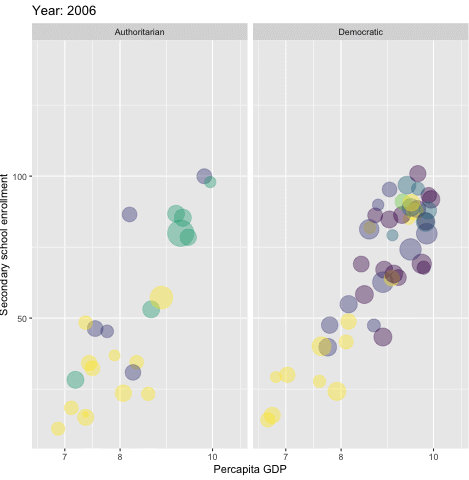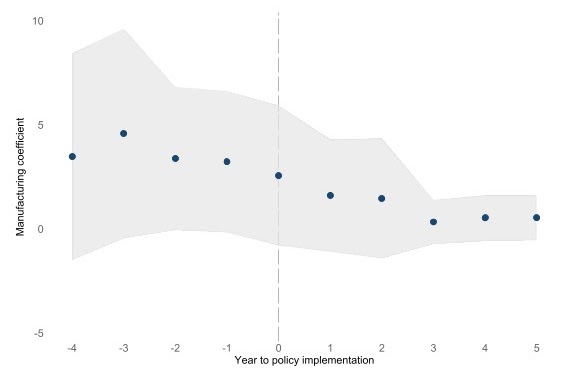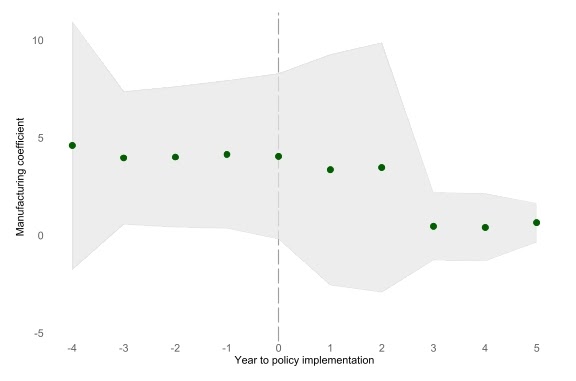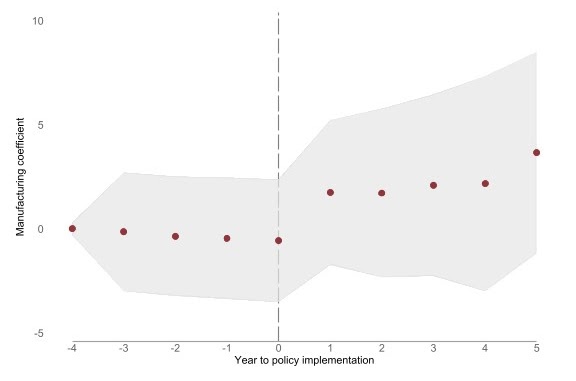
Democratic decline in worlds' largest GDP (developing) Does SEZ affect GVC Participation in Developing Countries? A Synthentic Control Approach
August 2023 (under review)
This study examines the impact of Special Economic Zones (SEZs) on Global Value Chain (GVC) participation in a cross-country setting. SEZs are strategically designed to attract foreign investments and bolster trade integration and have garnered significant attention in recent decades, yet their interaction with GVCs remains underexplored. Utilizing cross-country data from 1990 to 2017 and a causal inference framework, this study disentangles the effects of SEZ laws and operationalization on GVC participation. The study found a positive causal relationship between SEZ establishment and GVC participation, with SEZ operationalization exerting a stronger influence. Notably, the impact of SEZs primarily stems from enhancing domestic value added (DVA) rather than foreign value added (FVA) in the GVC. This paper contributes by constructing a novel dataset that separates SEZ phases, focusing on the manufacturing sector and GVC components. We employ a causal inference estimation framework to accommodate unobserved variables and diverse treatment timings to enhance the robustness of the findings. Overall, this study highlights the importance of effectively operationalizing SEZs to maximize their impact on GVC participation and economic growth.
Keywords: Special Economic Zone, Global Value Chain Participation, Counterfactual Estimation for Causal Inference Framework, Manufacturing


Consequences of authoritarianism on growth and aggregate productivity
March 2022 (conceptual research)
For the past couple of years political scientists have been expressing their concern on the return of authoritarianism. Data from the Economist shows that a large number of countries have slides into autocracy between 2009 and 2019. We revisit the institution and growth debacle following the recent democratic backlisliding phenomenon by constructing large panel data for 154 countries. Our preliminary result under eventstudy analysis, following Sun and Abraham (2020) suggests evidence that autocracy retards growth in the long run. The effect seems to be persistent across regions with notable exception in Asia (excluding the Middle East). On the first part, this study aim to estimate growth impact using linear and dynamic model. This study will enrich the previous findings of institution and growth nexus popularized by Acemoglu et al. (2019), Glaeser et al. (2004), Barro (1996), as well as others. Furthermore, this research will put the “functioning authoritarianism / developmental state” theory to the test. On the second part, we will explore the institution – growth nexus deeper by investigating the effect of authoritarianism on aggregate productivity change through structural transformation. Growth literature suggests (Otsubo & Otchia, 2020; Lin 2012; Kniivila 2007) that productivity is increasing along with the shift of country’s economic structure, namely through industriali-zation. Finally, based on the findings we will also discuss the poverty and inequality implication of the recent rise of authoritarianism.
Keywords: authoritarianism, democracy, institutions, structural change



Industrial policy and regional industrialization in Indonesia: A study on the impact of 2009 industrial park policy
February 2022
This study estimates the impact of the 2009 Indonesian Governmental Regulation No. 24 regarding industrial park (IP). The policy requires manufacturing activities to be located inside IP, which then followed by the increasing number of parks in the following years. We gather 15 years of industrial data for 34 provinces, before and after the policy implementation. Taking double differences in the number of IP across provinces and the treatment year (2010) suggests that for each construction of park, number of industrial FDI increased by 41 projects. However this does not translate to the growth of the manufacturing sector in general. We find that the policy has been more successful in promoting industrialization in Region 3 (less-advanced provinces). Our finding suggests that the IP policy increases the effect of FDI on province’s manufacturing output (% of GRDP) by around 0.7 %. To accelerate industrialization faster, the government could employ fiscal incentives to province governments that are willing to commit to support the development of industrial park as well as promoting inward FDI in the industry sector.
Keywords: industrial policy, industrial park, manufacturing, foreign direct investment, regional development
Research teams:
Bangkit A. Wiryawan, PhD (Nagoya University)


Does Global Value Chain participation help industrial upgrading in developing countries? New evidence from panel data analysis
December 2021
This paper assesses the impact of manufacturing global value chain (GVC) participation on industrial transformation in developing countries. After constructing a novel manufacturing GVC dataset for 37 countries from 2001 to 2017, we apply panel fixed-effect estimation to evaluate whether value chain integration could lead to industrial upgrading. Our findings show that increasing participation in manufacturing GVC has led to structural change in the industrial sector. A percentage increase in GVC corresponds to 0.35 – 0.42 % increase in the high-tech sector. Further investigation shows that the upgrading channel mainly comes through a strong forward linkage, while backward linkage contributes in diminishing low-tech manufacturing activities. Our findings are robust under alternative specification methods. This linear transformation confirms earlier studies and thus highlights the important role of GVC for promoting industrial upgrading in developing countries.
Keywords: global value chain, industrial upgrading, developing countries, panel fixed-effects
Research teams:
Bangkit A. Wiryawan, PhD (Nagoya University)
Harry Aginta, PhD candidate (Nagoya University)
Fazalloh Al Muizuddin, PhD candidate (Nagoya University)
